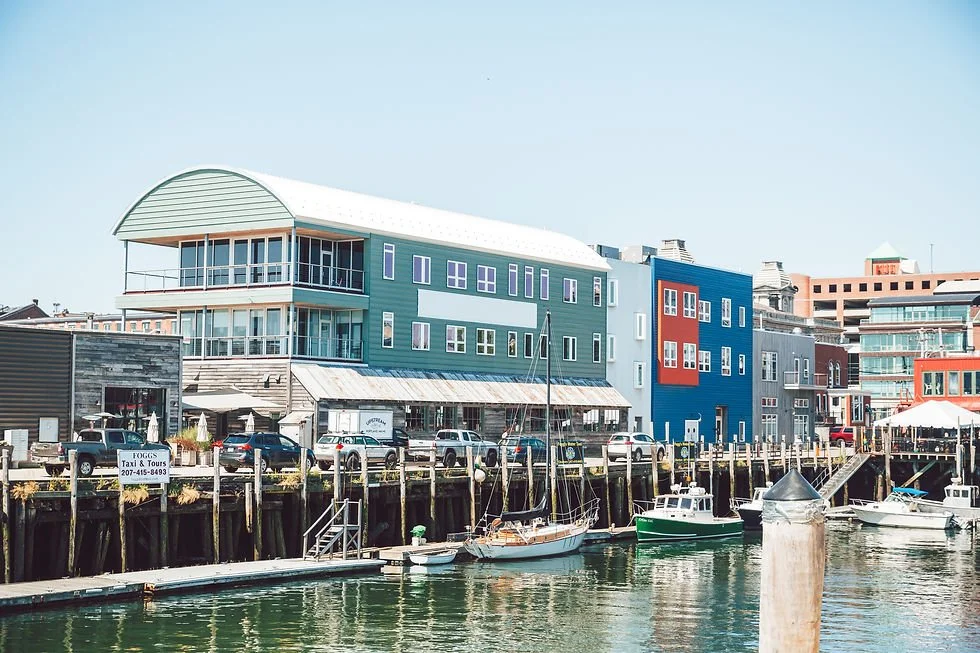The New England Chapter is hosting the first regional Climate Week event. We will take an in depth look at Climate Change through the eyes of front line scientists and researchers working in the field.
Paul Andrew Mayewski is the Director of the multidisciplinary Climate Change Institute and Fellow Emeritus of the Explorers Club. Mayewski’s life research is about understanding why and how the climate is changing so that we can prepare for adaptation and sustainability. Susan Kaplan is an Arctic anthropologist and archaeologist who studies prehistoric and historic Inuit responses to environmental change and contact with the West using archaeology, ethnohistory, visual anthropology, and paleoenvironmental data.
Our first Climate Week event will be in Portland, Maine on Sunday September 28th, 11am-1:30pm.
The event will be held at the Hús in collaboration with the New England Ocean Cluster (NEOC). This event is co-sponsored by New England Ocean Cluster (NEOC), the USM Office of Commercialization (OoC) and the New England Chapter of The Explorers Club.
We welcome Explorers Club members, NEOC and greater USM community members, and guests, as well as members of the public to this important and timely event.
11:00-11:30 Social
11:30-1:00 Introductions, Speakers and combined Q&A
1:00-1:30 Social
Parking and the Event - you may find street parking near the NEOC Building or the nearest lot is Simba Parking, 216 Fore St, Portland, ME 04101
Hus at NEOC is located at 68 Commercial Street Building C Floor 2 Portland, ME 04101
speakers
Dr. Paul Andrew Mayewski is an internationally acclaimed glaciologist, climate scientist and polar explorer. He is the Director of the multidisciplinary Climate Change Institute and Distinguished Professor in the School of Earth Sciences, School of Marine Sciences, School of Policy and International Affairs, Business School and Law School, all at the University of Maine. Paul was born in Scotland where he was introduced to hiking very early in life. He has thus far led more than 60 expeditions to the remotest polar and high elevation reaches of the planet and has received several prestigious national and international awards such as the Scientific Committee for Antarctic Research inaugural medal for Excellence in Antarctic Research from a field of 45 countries and all disciplines, the European Geophysical Union Oeschger Medal, an honorary PhD from Stockholm University, the International Glaciology Society Seligman Crystal and the Explorers Club Lowell Thomas Medal.
The Age of Climate Decision: Unmasking the Evolving Role of Humans in Climate Change
The Age of Climate Decision follows five decades and counting of expeditions filled with adventure, exploration, discovery, and contributions to the understanding of climate change. The story is told through the personal experiences of the internationally acclaimed glaciologist, climate scientist, and polar explorer Paul Andrew Mayewski. He and his teams have traveled throughout Antarctica, the Himalayas, Greenland, the Andes, and the Southern Ocean in search of answers to how and why climate changes. By living and working in some of earth’s most remote places, their journey documents the critical role played by past climate changes on the course of civilization. Their work also sheds light on science's transition from a gradualist to a dynamic, fast changing view of climate in which human activity goes from relatively minor to remarkably consequential. The purpose of the journey is clear — we have entered the age of climate decision, and our actions will define the course of civilization and the health of our planet.
Dr. Susan A. Kaplan, Arctic anthropologist and archaeologist, and Director of the Peary-MacMillan Arctic Museum & Arctic Studies Center, Bowdoin College. She is an Arctic anthropologist and archaeologist. Her work covers three areas of northern research. She studies prehistoric and historic Inuit responses to environmental change and contact with the West using archaeology, ethnohistory, visual anthropology, and paleoenvironmental data. Most of that work has taken place in northern Labrador, Canada. She studies the history of Arctic exploration using many of the same investigative tools, and that work has taken her to Ellesmere Island, Labrador, and Newfoundland and into many archives. Finally, she studies material culture and uses museum collections to develop exhibitions for the public and to reach out to the northern communities from which artifacts were collected and photographs and films were taken.
Facing Challenges in a Rapidly Changing Arctic: Collaboration and Innovation in Inuit Communities
The circumpolar north is undergoing profound changes in the face of rapid environmental, social, and political developments felt on local, regional, and global levels. Using stories drawn from archaeological and historical research as well as contemporary programs, this talk will highlight some of the collaborative and innovative projects and partnerships Inuit communities are developing and implementing to deal with unpredictable and rapidly changing environmental circumstances.
Photo Credit : NEOC
The Hús. OUR WATERFRONT COLLABORATIVE WORKSPACE
The Hús, Icelandic for House, is our collaborative workplace on the second floor 68 Commercial Street. Previously the Portland Science Center and located directly above Scales Restaurant, the space has been intentionally designed to convene and support the ocean-minded constituency of the Blue Economy. There are 20 glass offices of various sizes available, 14 permanent workstations for students, entrepreneurs, and growing companies, an executive boardroom, 2 breakout rooms, 2 phone booths, and more. The Hús is home to many wonderful tenants as well as a gathering place for the New England Ocean Cluster’s network members and collaborators.









